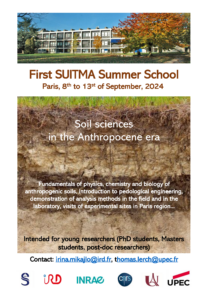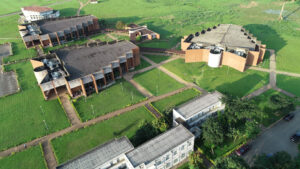
Thesis defense – Basile Finand
“Dispersal evolution and community structure of ants in response to habitat fragmentation”
Basile Finand, Doctorant Sorbonne Université,
Equipe ESEAE, Département ECOEVO
Equipe EERI, Département DCFE
Vous convie à la soutenance de sa thèse :
“Dispersal evolution and community structure of ants in response to habitat fragmentation ”
Le jury sera composé de :
Dr. Elodie Vercken, Directrice de recherche INRAE (Sophia Antipolis), Rapporteuse
Dr. Pierre-Olivier Cheptou, Directeur de recherche CNRS (Montpellier), Rapporteur
Pr. Emmanuelle Porcher, Professeure des universités MNHN (Paris), Examinatrice
Dr. Julien Cote, Chargé de recherche CNRS (Toulouse), Examinateur
Dr. Thibaud Monnin, Directeur de recherche CNRS (Paris), Directeur de thèse
Pr. Nicolas Loeuille, Professeur des universités SU (Paris), Co-directeur de thèse
La soutenance aura lieu le 03/02/2023 à 13h30
Campus P&M Curie, bât. 46-56, 2e étage, salle de conférence de l’UFR TEB
Abstract: Habitat fragmentation is one of the major threats to biodiversity. The main causes are due to human activity. It is produced by increased urbanisation, agriculture, deforestation, or transport infrastructure. Habitat fragmentation is characterised by a decrease in the amount of favourable habitat and by the isolation of this habitat. The objective of this thesis is to better understand its effect at several scales, from the population level by looking at inter-individual differences linked to different dispersal strategies, to the community and metacommunity level by observing their composition. Several approaches are used: theory, an empirical study and field observations. Dispersal is a key life-history trait for survival in a fragmented habitat as it allows the movement of individuals from one fragment to another and the colonisation of empty fragments. However, several forces have opposing effects on the maintenance of species in a fragmented habitat. Fragmentation increases the costs of dispersal in an unfavourable habitat, increases heterogeneity and competition between relatives. Habitat fragmentation has an impact at the community level by changing the number of species or the composition of communities. Ants are good models to study because they are present in many contrasting environments and have a strong dispersal polymorphism. There are winged queens that disperse alone over long distances, or apterous queens that disperse accompanied by a group of workers over shorter distances. At the population level, I studied the ant Myrmecina graminicola which advantageously uses both dispersal strategies. At the community level, I studied ant species in Parisian parks, a highly fragmented habitat, and in forests near Paris, a less fragmented habitat. In the first chapter, I showed with a theoretical approach that the dispersal distance increases when the habitat fragmentation increases in a context of competition/colonisation trade-off. Habitat structure can strongly affect these results with a decrease of the dispersal when the habitat is aggregated. In a second chapter, I highlighted the existence of this competition/colonisation trade-off in M. graminicola and the importance of the presence of workers during the foundation of a new colony, their presence increasing the survival and growth of the colony. In a third chapter, I showed a decrease in dispersal with increased habitat fragmentation in urban environments in M. graminicola, suggesting that the cost of dispersing in highly fragmented urban environments selects against dispersal. Finally, I observed an increase in species richness, with very different ant communities, between urban and forest environments and a decrease in species richness with increasing park size in the city. There is no effect of fragmentation in forests. This thesis shows the diversity of responses to habitat fragmentation, both at the population and community levels, and opens the way for further studies.Key-word: Habitat fragmentation, dispersal, ants
- Orateur: Basile Finand
- Laboratoire: iEES Paris
- Url de l'orateur: https://iees-paris.fr/annuaire/finand-basile/




